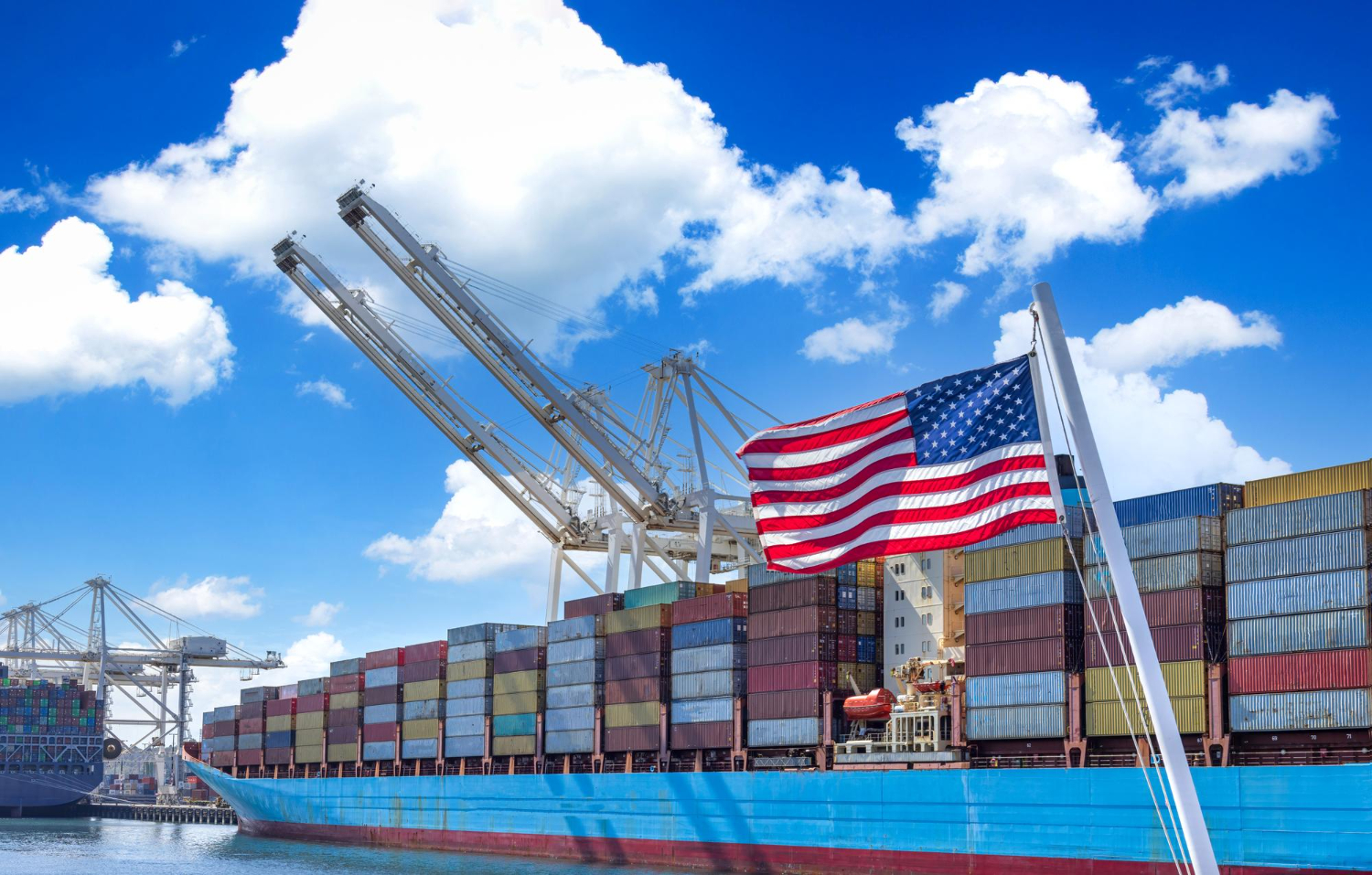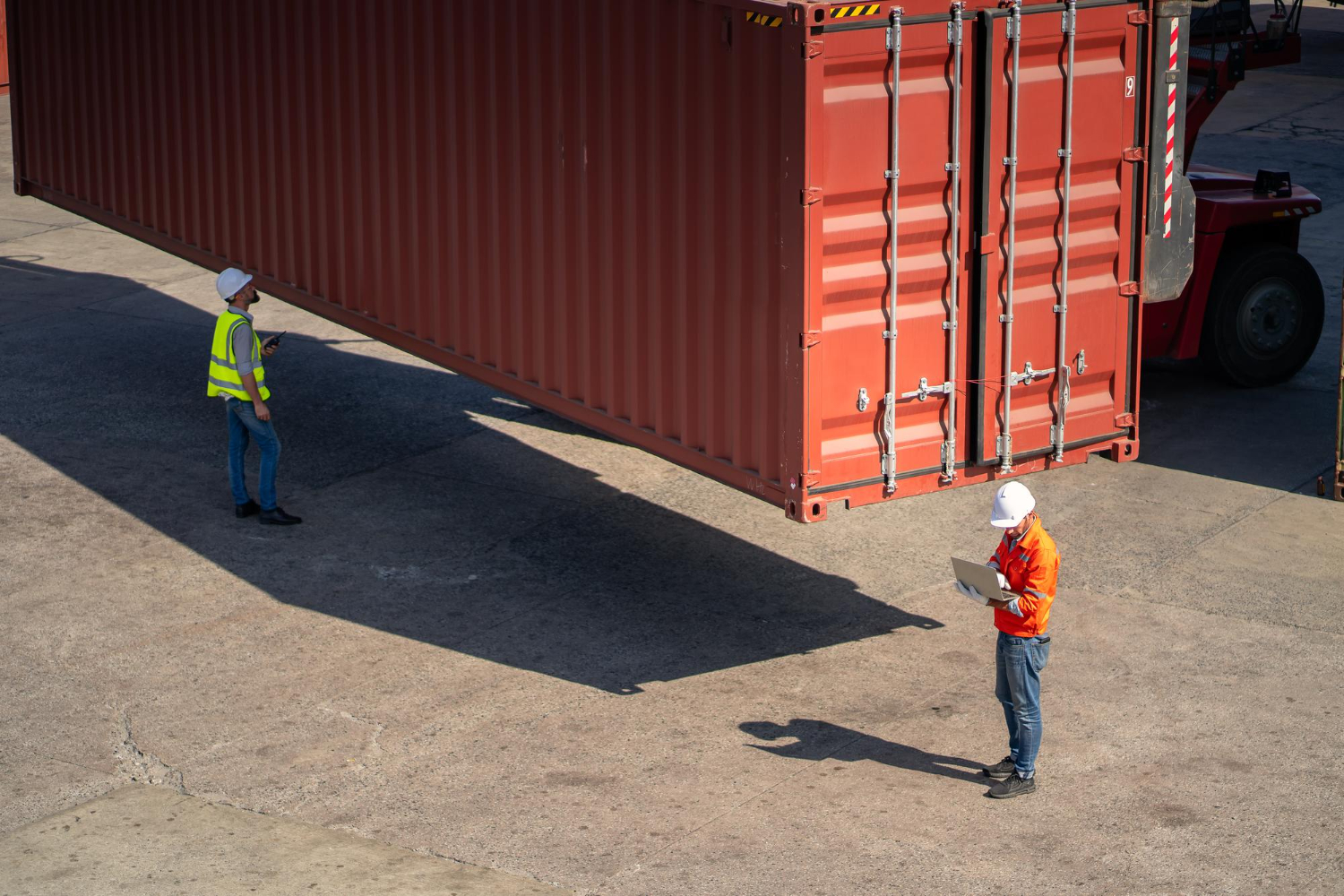
🎄 Festive Rush - Deliveries might take a bit longer. We appreciate your patience.
Festive Period 2025
Cut-Off Times
From 29 August 2025, every shipment to the United States must list the Country of Origin (COO) for each item on the commercial invoice. US Customs will not clear shipments without this information, and exporters risk delays, fines, or rejected goods if it’s missing.
This tariff update affects everyone, from a small e-commerce store in Melbourne shipping clothing to New York, to large manufacturers exporting machinery. COO is no longer an optional detail. It’s now a requirement that determines whether your goods move through customs or get held up.
Here’s a quick breakdown of what changed, why it matters, and how Australian exporters can stay compliant under the new U.S. tariff rules.
Effective Date: 29 August 2025
Requirement: Every item listed on a commercial invoice for US-bound shipments must include its Country of Origin (COO).
Why It Matters: U.S. Customs uses COO details to decide tariffs and check trade agreement eligibility. If the information is missing or wrong, your shipment can be delayed, fined, or even rejected. Officers may also request a Certificate of Origin at any point.
Tip: Use digital tools such as UPS Paperless Invoice or Upload My Form to send COO details directly, cutting down paperwork errors and reducing clearance delays.
For example, an Australian clothing retailer that forgets to include COO on invoices could see their shipment to Los Angeles held at customs until corrected.
These new rules are part of broader U.S. tariff changes affecting all exporters. To stay compliant and avoid hold-ups, many Australian businesses rely on Couriers & Freight’s international shipping service for smooth customs clearance.
The most urgent change is the new rule making Country of Origin (COO) mandatory on every U.S. commercial invoice from 29 August 2025. Customs officers now rely on this detail to apply tariffs, confirm trade agreements, and decide if goods clear quickly or get held up.
Alongside COO, several other tariff changes are reshaping U.S. imports:
For Australian exporters, these changes mean higher landed costs and stricter documentation checks. For example, even a $200 skincare shipment now faces tariffs and FDA clearance before reaching U.S. customers.
For importers and exporters, the Country of Origin (COO) is no longer just a box to tick on your invoice. Under the new U.S. tariff rules, it directly affects whether your shipment clears customs smoothly or gets delayed.
Here are the 4 main reasons COO now matters more than ever:
For example, a Sydney wine exporter or an online skincare retailer could see their shipment blocked simply for missing COO details. For Australian businesses, every invoice now needs COO information for each product, no exceptions.

Meeting the new COO requirement comes down to getting the basics right. A clear checklist helps exporters avoid costly mistakes and keep goods moving across the border.
Here are the 5 US customs compliance steps to follow:
Every product on your commercial invoice must have its Country of Origin listed. Don’t guess or use vague terms; accuracy is essential for clearance.
COO details should match across all invoice copies. A mismatch between paper and digital versions can trigger manual inspections.
Platforms like UPS Paperless Invoice or Upload My Form send COO data directly to customs, cutting errors and reducing clearance times.
Even if not always requested, customs officers may demand proof at any time. For example, a Brisbane exporter of auto parts could face delays if they can’t produce the right certificate quickly.
Logistics providers that track tariff updates and manage documentation help exporters stay ahead of regulatory shifts.
Agree upfront whether the shipper, recipient, or a third party will pay duties and taxes. Clear responsibility avoids billing disputes and helps customs process shipments faster. For e-commerce, consider shipper-paid duties and taxes (D&T) to give buyers a smoother experience and avoid delays caused by unexpected charges at delivery.
Exporters who build these habits into their shipping process reduce the risk of goods being stopped at the border. Instead of scrambling to fix issues after a delay, businesses can keep their U.S. supply chains predictable and customer relationships intact.
Couriers & Freight makes compliance simpler for Australian exporters by building COO checks directly into the shipping process. Invoices are validated before dispatch, so errors are caught early, long before U.S. Customs has the chance to hold your goods.
Take one example: a Queensland food exporter avoided thousands in penalties when our system flagged missing COO details before the shipment left port. The corrected invoice cleared customs smoothly, saving both time and money.

We also keep exporters up to date on every tariff change, from new FDA rules to sector-specific duties. Instead of chasing updates, you’ll know what’s coming and how it affects your shipments.
Whether you’re sending small parcels or container loads, Couriers & Freight combines automation with hands-on guidance to keep your goods moving. With us, compliance isn’t an afterthought. It’s built into every shipment.
The new U.S. rule on Country of Origin is already in effect, and every exporter must adapt. Invoices without COO details risk delays, fines, or rejected goods – problems that can be avoided with the right preparation.
Exporters who act early will keep their supply chains moving and their customers happy. Couriers & Freight works with Australian businesses every day to make sure shipments meet U.S. customs requirements from the start.
With us, you can ship with confidence knowing compliance is covered.









MHP

No Surcharge*

$16.50

$14

$15.50
$0

$15.50

$14.75
$0
$0
$0
$0
MHP Large Item

No Surcharge*

$16.50

$75

$62

$62

$60.10

$14.75
$0
$0
$0
$0
Residential Pickup

No Surcharge*

$6
$0

$9
--

$9

$10.60
$0
$0
$0
$38.50
Reidential pick up 30-99kgs

No Surcharge*

$63
$0

$9
$0

$9

$74.15

$20
Won't carry
Won't carry

$38.50
Residential pick up 100kgs+

No Surcharge*

$198
$0

$9
$0

$9

$158.87

$50
Won't carry
Won't carry

$38.50
Residential Delivery up to 29kgs

No Surcharge*

$6
$0

$9
--

$9.00

$10.60
$0
$0
$0

$38.50
Residential Delivery up 30-99kgs

No Surcharge*

$63
$0

$9
$0

$9

$74.15

$20
Won't carry
Won't carry

$38.50
Residential Delivery 100kgs+

No Surcharge*

$198
$0

$9
--

$9

$158.57

$50
Won't carry
Won't carry

$38.50
Tail Lift Pick up 50-99kgs Sydney / Melbourne

No Surcharge*

$45

$50-$250

$88

$88

$88

$44.07

$120
Won't carry
Won't carry

$61.50
Tail Lift Pick up 100-299kgs Sydney / Melbourne

No Surcharge*

$85

$50-$250

$88

$88

$88

$44.07

$120
Won't carry
Won't carry

$61.50
Tail Lift Pick up 300-499kgs Sydney / Melbourne

No Surcharge*

$120

$50-$250

$88

$88

$88

$44.07

$120
Won't carry
Won't carry

$61.50
Tail Lift Pick up 500kgs + Sydney / Melbourne

No Surcharge*

$250

$50-$250

$88

$88

$88

$44.07

$120
Won't carry
Won't carry

$61.50
Tail Lift Delivery 50-99kgs Sydney / Melbourne

No Surcharge*

$45

$50-$250

$88

$88

$88

$44.07

$120
Won't carry
Won't carry

$61.50
Tail Lift Delivery 100-299kgs Sydney / Melbourne

No Surcharge*

$85

$50-$250

$88

$88

$88

$44.07

$120
Won't carry
Won't carry

$61.50
Tail Lift Delivery300-499kgs Sydney / Melbourne

No Surcharge*

$120

$50-$250

$88

$88

$88

$44.07

$120
Won't carry
Won't carry

$61.50
Tail Lift Delivery 500kgs + Sydney / Melbourne

No Surcharge*

$250

$50-$250

$88

$88

$88

$44.07

$120
Won't carry
Won't carry

$61.50
Dead weight over 32KGS carton freight

No Surcharge*

$16.50

$75

$70

$70

$70

$14.75
$0
Won't carry
Won't carry
$0
Oversize Surcharge 1.20 - 1.54

No Surcharge*
--
$0
$0
$0
$0

$5.40

$10

$15
Won't carry
$0
Oversize Surcharge 1.55 - 1.85

No Surcharge*

$17

$20
$0
$0
$0

$11.93

$10

$15
Won't carry
$0
Oversize Surcharge 1.86 - 2.20

No Surcharge*

$37

$40
$0
$0
$0

$11.93

$10
Won't carry
Won't carry
$0
Pallet Surcharge

No Surcharge*
--
$0
$0
$0
$0
$0
$0
Won't carry
Won't carry
$0
Hand Unload Fee Carton

No Surcharge*
--
$0

$70

$70

$70

$47
$0
Won't carry
Won't carry

$61.50
Western Australia Regional Surcharge

No Surcharge*

%10
$0
$0
$0
$0
$0
$0
$0
$0
$0
*Surcharges may apply to areas/deimensions not listed
**Prices correct of 16th September 2024
Click to start shipping in less than 60 seconds